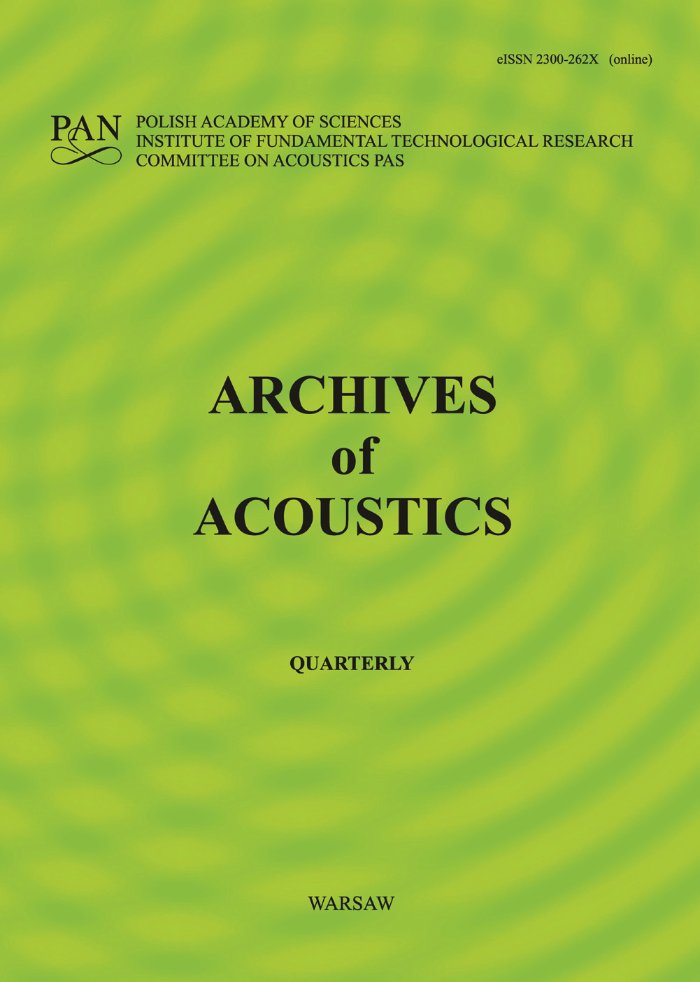Most read articles by the same author(s)
- E. Zamysłowska-Szmytke, W. Szymczak, M. Śliwińska-Kowalska, Two methods of vibration perception assessing in workers exposed to hand-arm vibration , Archives of Acoustics: Vol. 29 No. 2 (2004)
- M. Pawlaczyk-Łuszczyńska, A. Dudarewicz, M. Waszkowska, W. Szymczak, M. Kameduła, M. Śliwińska-Kowalska, Does low frequency noise affect human mental performance? , Archives of Acoustics: Vol. 29 No. 2 (2004)


